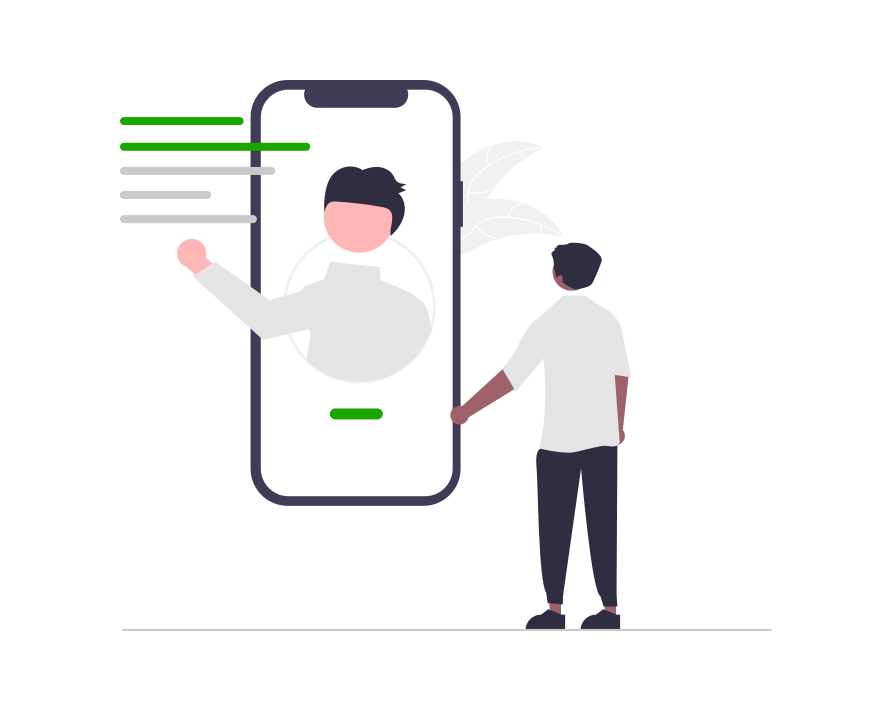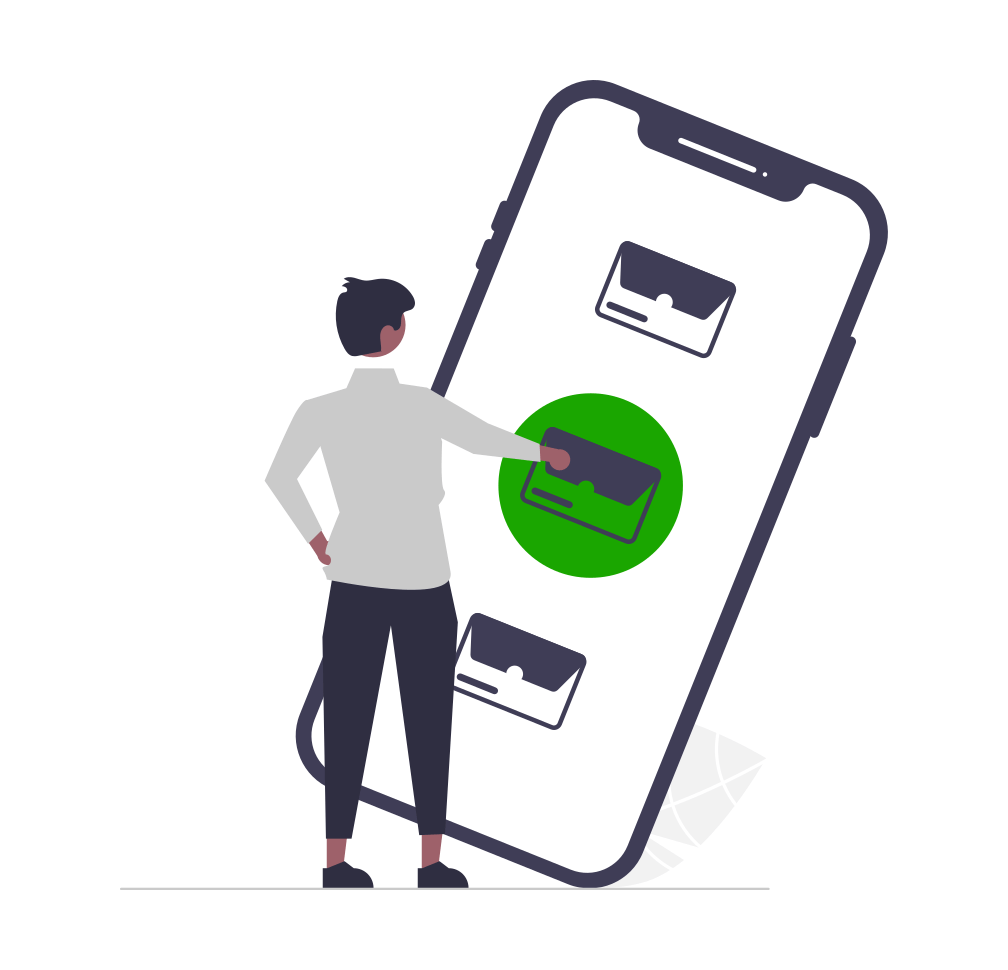Referral marketing is an inexpensive and effective way to grow your business. It’s free, easy to learn, and can be done by you and your company.
This guide will teach you everything you need to know about referral marketing including how it works, why it’s important for your business growth, things to consider before starting a referral program, and more!
What is referral marketing and how does it work?
Referral marketing is the practice of encouraging customers to make referrals. It’s a referral program where you provide incentives for your existing customer base to refer new buyers or leads. There are three types: Word-of-mouth, incentivized and advocate referral schemes.

You may be wondering how it can help grow your business? Well according to statistics from MarketingSherpa, 84% of people trust recommendations from friends and family over other forms of advertising like TV ads, social media posts, billboards or email blasts!
And it makes sense since everyone wants what their friend has – they have more faith in that product because someone they know personally recommends it to them instead of some random ad online. Referral marketing taps into this powerful referral program and encourages existing customers to refer more people.
What should you consider before starting referral marketing for your business?

There are several things that you should consider when thinking about this powerful strategy, including product, budget, goals & objectives, and more!
#1 Product
What is the core of your referral campaign? Ensure that the product or service you provide is worth recommending. Make sure you deliver what you promise as a bare minimum. Products or services that deliver value receive a lot of positive reviews and ample referrals.
#2 Budget is your main referral program asset
Keep in mind how much money will go into this project since it may require incentives for participants as discounts on future purchases or other referral incentives.
The referral program should also have a budget for tools like referral software and referral marketing agency.
Do you need brands, logos or graphics? Make sure to include the cost of these as well!
If you have referral contest associated with your referral campaign, be sure to factor in prizes such as giveaways (e.g., iPads), gift cards from Amazon and other popular online retailers, etc. The average consumer will not participate if they feel that it’s not worth their time so make sure this incentive is worthwhile enough to increase participation rates!
You don’t want your referrals being too low because incentives are unattractive – people are lazy! Keep them motivated by providing something that matters to them so can benefit too.
#3 Goal & Objectives
What do you hope referral marketing will accomplish for your business? This is an important step because if there isn’t a well-defined goal then it could end up being very ineffective (or even harmful) to your business growth and revenue. Make sure that your company has clear objectives that are defined from the get go of the referral campaigns!
Referral schemes work by incentivizing customers with discounts or rewards when they refer someone else whether it’s through word-of-mouth, advocacy or incentivized referrals.
It refers to any positive information about a product/service that spreads via personal conversation between two people who trust each other while advocate referral programs incentivize customers to become referral marketers by offering additional incentives for new referrals.
Incentivized referral programs give a reward or incentive when referrers make a referral of their own, so it’s the best way to get more people involved in your referral marketing campaign for better customer acquisition.
Referral Rate
A referral rate is the percentage of customers that are referred to a business by another customer. This can be measured in terms of how many new customers are acquired through referrals or how much revenue is generated from referrals. This is one of the key metrics that you have to constantly watch out for.
The difference between referral marketing and word-of-mouth referral
Word-of-mouth referral marketing is when your customers talk about their positive experience with your company and refer new potential buyers. It’s an excellent way to spread the word that you provide a certain product or service since it comes from someone they trust! The main difference between referral marketing and a word-of-mouth referral program is who delivers the message: referral marketers are paid for referrals while WOMM can be free, but may not always deliver results as effectively due to lack of budget.

Incentivized referral programs vs advocate referral programs
Incentivized referral programs are when your customers refer someone new to your company and they receive a reward or incentive for referrals. This is considered an effective referral program because the customer has more of an interest in making sure their referral works out than just doing it as a favor.
On the other hand, advocate referral models involve bonus incentives that go only to advocates who have referred multiple people which means there’s more at stake since they’re putting their reputation on the line if things don’t work out!
Advocates also tend to be brand ambassadors – loyal fans who will happily share how great you are with others so this may encourage even more positive word-of-mouth referral marketing campaigns!
The difference between referral marketing and affiliate marketing
Referral marketing is very similar to affiliate marketing but referral marketers are rewarded for their referral while affiliates receive a commission. Both forms reward customers with incentives in return for sharing your business on their own personal channels, whether it’s through social media or word-of-mouth referrals!

Why do businesses need referred customers?
Referral marketing is an inexpensive and effective way to grow your business. It’s free, easy to learn, and can be done by anyone in the company!
This guide will teach you referral marketing basics including how it works, why it’s important for your business growth, things to consider before starting a referral program like choosing referral advocate rewards or incentives that are appropriate for everyone involved since advocates may have different preferences when it comes time to redeem them.
It’s also good practice with referral marketers who refer someone new between two and five times per month to maintain their status as tier one referral marketer. On the other hand, if they refer someone new more than six times per month, they should be elevated to tier two referral marketer.
How to create a successful referral program
When creating referral marketing campaigns, keep in mind referral marketers are rewarded for their referral while affiliates receive a commission. Both forms of referral programs reward customers with incentives in return for sharing your business on their own personal channels, whether it’s through social media or word-of-mouth referrals!

What should you do?
If you’re running such campaigns, start by defining the goals and strategy to ensure everyone involved is working towards achieving them.
If you want to see an increase in sales revenue but aren’t sure how many new leads should be generated each month as a result of this campaign – that will affect the program design significantly since different referral advocate rewards may be needed depending on these KPIs (Key Performance Indicators).
The benefits of referral marketing for your business
Types of rewards you can offer in your program? Here they go!
#1 Cash
Cash referral reward is by far the most common referral advocate incentive. It’s a popular choice because it provides instant gratification for advocates and allows them to spend their earnings as they wish!
If you’re planning on incentivizing your referral program with cash giveaways, here are some tips that will help increase participation rates in programs like these:
– include clear instructions when designing email campaigns so customers know how to refer people to generate sales revenue or earn referral bonuses themselves;
– provide an easy way to track referrals (a unique referral link generated through share buttons) and make sure everyone involved knows where those links should be sent – whether its social media or via WOMM.
#2 Discounts
Discount referral reward is the second most popular incentive type in referral marketing. It’s a great choice for companies who want to offer incentives that are easy for advocates and their referrals to redeem, but still provide some value!

If you’re planning on incentivizing your referral program with discounts, here are some tips that will help increase participation rates:
– make sure everyone involved knows where those links should be sent – whether its social media or via word of mouth;
– include clear instructions when designing email campaigns so customers know how to refer people to generate sales revenue or earn referral bonuses themselves;
– follow up with every advocate after they’ve referred someone new and ask them if everything was clearly explained
#3 Free products
Free product referral reward is a great choice for companies who are looking to get more brand exposure. Since advocates will have the opportunity to share products completely free of charge, they’re likely going to be excited about promoting your business!
#4 Referral fee
Referral fee referral reward is a great choice if your referral campaign targets businesses. If you’re looking to get best customers in the door, it’s likely that referral fees will be an added bonus for them!
If you choose referral fee as your incentive type, here are some tips:
– decide whether or not these funds should grow over time since referral advocates may need more and more money from referrals to cover their own product costs;
– include clear instructions when designing email campaigns so clients know how to refer people to generate sales revenue or earn referral bonuses themselves;
How to execute the perfect referral marketing strategy
The most important thing about referral marketing is having a well thought strategy behind it which sets up clear objectives with measurable results. A plan helps brands like yours attract potential clients more easily by utilizing socials and sharing content online. That’s what is called referral marketing!

Other referral marketing strategies to keep in mind are:
– creating a referral program for your business that’s easy for customers to understand and participate in;
– follow up with every advocate after they’ve referred someone new and ask them if everything was clearly explained when referring people through referral links!
Make sure everyone knows what referral rewards will look like and how much those costs should add up to be.
This means strategizing all of these details before you even launch a referral campaign online or offline! Referral marketing strategies are incredibly powerful because they’re able to generate more than just one sale, but many which can lead into repeat customers over time as well. Just make sure you’re prepared to manage referral marketing campaigns – and the rewards that come with them!
Examples from companies who have successfully used referral campaigns in the past
#1 Dropbox referral program
Dropbox referral marketing campaign is a great example of referral reward structure done right. Dropbox used referral fee as their referral advocate incentive type, and it worked like magic – they got 100 million users in just two years, and many satisfied users.

The reason why this particular referral strategy was so effective for the company could be explained by various factors:
– referral fees were high enough to motivate advocates (they needed to refer someone new to get $75);
– there wasn’t any limit on how many people an individual customer can refer;
#2 AirBNB referral marketing program
AirBNB referral campaign is another great example of referral marketing strategies done right. This referral fee was a $25 discount for both new and existing happy customers – it motivated advocates to refer more people, but also rewarded them at the same time!
AirBNB referral program could be successful because of the referral fee they chose – $25 discount was a generous enough amount to motivate advocates, but not too much that it would put AirBNBs costs for rewards on top. That’s also a great idea of how existing customer base was used.
Booking.com had a very similar campaign.
Tips on how to make sure customers are happy with their experience when they refer others
– referral links can be generated through share buttons so advocates will always know where they should send their new leads;
– keep the conversation going with every referral advocate by asking them how everything was explained when referring someone to receive rewards. In other words, make sure everyone knows what referral rewards will look like and how much those costs should add up to be! This means strategizing all of these details before you even launch a referral campaign online or offline – it’s that important!
Your referral marketing strategy should revolve around happy customers who are a part of your marketing plan.
By building customer interaction in your referral widget or referral app, you can spend your marketing budget wisely and make referral business model your next marketing channel for core business lead generation.
Why content is king in the world of referral marketing
Content marketing is really important for referral marketing as it can impact on providing customers, benefiting current customers, getting more referred leads and growing customer bases! Content is king, so it’s important for referral marketing campaigns to stand out from the crowd.
This way, your referral program may succeed – even if you don’t believe that content can bring you new customers and intensify marketing efforts!

How to create captivating referral marketing content?
How to create captivating referral marketing content? Think about what makes people tick and focus on giving them something that they need or want instead of selling directly to them.
Building relationships with customers will eventually lead to brand loyalty which results in a sustainable referral campaign. Here are some ideas: write an ebook, publish case studies, record webinars or offer white papers so as not to be pushy and to give customers something of value.
Provide referral program incentives that are attractive for your audience: what makes referral marketing so powerful is the fact that it’s not only about referral codes and cash back, but also about new products or exclusive deals which attract attention with great benefit.
Rewards vs bonuses
When it comes to rewards versus bonuses in referral marketing, referral program managers must determine the type of reward that an individual referral partner receives.
Usually bonuses are larger than rewards and they can be offered as a way to thank referral partners for their efforts or for encouraging them to achieve certain goals in the future (like reaching a specific number of sales).

Rewards may also come in different forms: some people prefer cash-back while others would rather receive discounts on products from your store – just make sure you know what makes each referral partner happy!
Social currency can be a win win win situation for you too, if you count on higher profit margins. You may also want to leverage online forums to raise brand awareness and reach to your target market.
Even if most customers of your business came to you e.g. via Facebook ads or other purchasing decisions, referral marketing works as an entire process for getting to your targeted audience in no time. No matter if you run a business based on a custom built solution, or you are a small business – with referred leads, you can have complete control over how your product or service performs!
Tips for turning visitors into customers and customers into advocates
#1 Offer them value
You can use referral marketing as a great word of mouth marketing tactics to not only make customer interactions, but also deliver value. A referral program won’t work unless you’re able to provide referral partners with something that they want or need, so make sure your referral marketing strategy includes a sense of value which is important for all parties involved.
At the end of the day, making every referral partner happy will pay off big time and keep them coming back! If people don’t feel like referring their friends because there’s no incentive, then it defeats the purpose in setting up at all – think about how much money you could be losing out on just by not having enough referrals going through!
Rewards may also come in different forms: some people prefer cash-back while others would rather receive discounts on products from your store – just make sure you know what makes each referral partner happy! Referral partners are more likely to refer new customers if there’s something in it for them so don’t be shy about dangling referral incentives that attract attention.
#2 Promote your referral program extensively
Promoting referral marketing campaigns is another important factor to keep in mind.
Make sure you have an active referral program set up and use your referral links everywhere on the web! Don’t be afraid of putting referral codes all over your website, social networks and even offline – print them out on business cards.

You can also promote it through other businesses which are similar so make partnerships with companies that serve a similar clientele if possible since they may want to refer customers who visit their store(s) again through your own referral campaign (giving away certificates for referrals).
#3 Determine type of rewards
When it comes to referral marketing, referral program managers must determine the type of reward that an individual referral partner receives. Usually bonuses are larger than rewards and they can be offered as a way to thank referral partners for their efforts or for encouraging them to achieve certain goals in the future (like reaching a specific number of sales).
Rewards may also come in different forms: some people prefer cash-back while others would rather receive discounts on products from your store – just make sure you know what makes each referral partner happy!

At the end of the day, making every referral partner happy will pay off big time and keep them coming back! If people don’t feel like referring their friends because there’s no incentive, then it defeats the purpose in setting up at all – think about how much money you could be losing out on just by not having enough referrals going through!
So remember: always offer great incentives to drive more conversions since getting new customers through referral links can lead into repeat sales over time as well.
The best thing you can do for a referral campaign is to provide people with an incentive which motivates them to share content on social platforms like Twitter, Facebook and LinkedIn – reaching their friends as well and making sure they get familiar enough with your brand!
#4 Identify the best promotional channels
Promoting referral marketing campaigns is another important factor to keep in mind. You should know which channels will work best for your affiliate efforts!
What are the best channels for referral marketing program?
Of course, it depends! Email marketing is great since referral partners are usually your most loyal customers – they trust you and know that whatever offer you have out there, it’s a good one.

You may also try offline channels for promotion. Promote referral links at events or any sort of offline trade show that you attend – referral marketing is a great way to meet new people and stay in touch! You can also mention referral codes when talking about sharing content online such as Twitter, Facebook or LinkedIn with friends, as it can affect lead generation of any grooming company.
There are tons of ways for promoting referral marketing campaigns so think outside the box and use all your promotional channels to reach more customers through referrals if possible!
#5 Make sure you know your target group and their needs
Knowing your customer base and what they want is also important.
Who are referral marketing customers?
They’re usually people who trust you enough to buy from them! You can offer services through online channels like Facebook or Twitter, but referral partners will be most loyal customers – in fact, their friends might not have even heard of your store yet so make sure referral codes allow for easier sharing on social media platforms since that’s the whole point behind referral marketing campaigns anyway: reach more potential clients by using referrals as a way to increase traffic!
Customer referrals can be a huge asset in your referral process and a shining star in your referral marketing software. Next referred customers can keep bringing more happy customer over social media, enhancing your digital marketing strategy and making your existing customers even more loyal!

For example, let’s say Coffee Joe likes going out at night after work with his friends (all coworkers) and he always goes to Cafe Latte during those times because it offers good deals if you come after certain hours of the day. Joe tells his friends about Cafe Latte and they’re interested in coming over for a cup themselves – so referral marketing comes into play since you have loyal customers who are willing to share great deals with their friends!
High performing referral programs base on huge and vast referral marketing work. Social media are a great connector between traditional marketing and marketing tactics to make a referral process easy. Use referral marketing to make the most of your customers acquired in the past (and all their friends!).
#6 Research where from referrals are coming now!
Another important aspect of referral marketing campaigns is to know where referral traffic comes from!
You should pay attention not only to the number of referrals you get but also which channels are the most effective in producing referral partners for example – social media like Twitter, Facebook or LinkedIn may be great ways to reach more potential customers through their friends so make sure you’re checking out what’s working best for your business before starting a referral campaign.

It’s all about research: knowing how many referrals come from each channel as well as seeing how conversion rates can improve with one referral partner over another will help you keep track on results and always have an eye on changes when it comes down to running successful affiliate programs and referral marketing program.
#7 Create captivating promotional materials for word of mouth marketing
Customers are more likely to share referral links if they think it’s a compelling offer – so make sure you create great referral material for your campaign!
Check out other referral program and see what works the best or even try asking your referral partners how they would like to be rewarded with their efforts. You can keep up with different promotions but always remember that having an effective strategy will rely on rewarding customers who want to support you in making new business while generating leads at the same time!
How to go about sharing referral codes?
So, start sharing referral codes everywhere possible: online (where most people spend their free time) as well as offline (trade shows and events). With some creativity and good referral marketing software, any place could become a spot for promoting referral marketing campaigns for referral partners to share referral links with their friends!

You should definitely check out marketing channels for inspiration on how your referral process can look like. Check out Shopify’s referral program as an example of a referral marketing campaign that works by rewarding customers with 15% off new referrals within the first month and later generating discounts for both referral partners and referred clients when they come back together again – not only is this a great way to increase customer loyalty but it also guarantees high levels of ROI (return on investment) from running such campaigns since most people will return after receiving discounted goods or services.
Social media are key in any modern digital strategy, so make sure you’re checking out what networks work best for your business before deciding on a referral marketing software.
The future of referral marketing – what’s coming next and how it will affect you as a business owner?
The future of referral marketing is bright and has a lot to offer for businesses who want to get ahead in the digital world. From other customers that will increase revenue, customer acquisition with social referrals as well as all sorts of referral software – there are plenty ways through which referral marketing can help your business grow!
There’s an abundance of referral partners out there – it just takes finding them and making effective use of every way possible so make sure you’re not missing out on any referral program by running one yourself or taking advantage from existing ones!
Referral and mobile – power couple?
Don’t forget about mobile: more people than ever before have access to smartphones so try looking into how apps play a role in building successful referral campaigns (and don’t go thinking referral marketing programs are limited to desktop only anymore!)
Data and referral – power couple!
Another important aspect of referral marketing is using referral data and metrics. You should pay attention not only to the number of referrals you get but also which channels are the most effective in producing referral partners. Best customers are loyal satisfied customers, often even better than family members. And they can be great for your referral efforts, bringing this valuable social currency into play for your business.
Say goodbye to formal referral program, once and for all.


